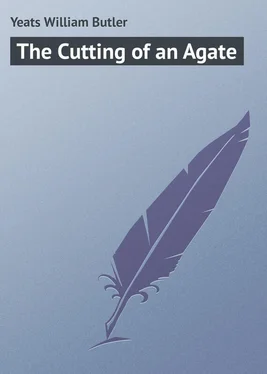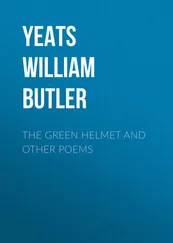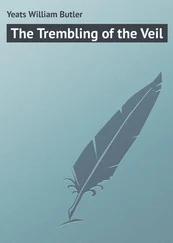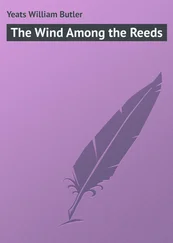William Yeats - The Cutting of an Agate
Здесь есть возможность читать онлайн «William Yeats - The Cutting of an Agate» — ознакомительный отрывок электронной книги совершенно бесплатно, а после прочтения отрывка купить полную версию. В некоторых случаях можно слушать аудио, скачать через торрент в формате fb2 и присутствует краткое содержание. Жанр: foreign_prose, на английском языке. Описание произведения, (предисловие) а так же отзывы посетителей доступны на портале библиотеки ЛибКат.
- Название:The Cutting of an Agate
- Автор:
- Жанр:
- Год:неизвестен
- ISBN:нет данных
- Рейтинг книги:4 / 5. Голосов: 1
-
Избранное:Добавить в избранное
- Отзывы:
-
Ваша оценка:
- 80
- 1
- 2
- 3
- 4
- 5
The Cutting of an Agate: краткое содержание, описание и аннотация
Предлагаем к чтению аннотацию, описание, краткое содержание или предисловие (зависит от того, что написал сам автор книги «The Cutting of an Agate»). Если вы не нашли необходимую информацию о книге — напишите в комментариях, мы постараемся отыскать её.
The Cutting of an Agate — читать онлайн ознакомительный отрывок
Ниже представлен текст книги, разбитый по страницам. Система сохранения места последней прочитанной страницы, позволяет с удобством читать онлайн бесплатно книгу «The Cutting of an Agate», без необходимости каждый раз заново искать на чём Вы остановились. Поставьте закладку, и сможете в любой момент перейти на страницу, на которой закончили чтение.
Интервал:
Закладка:
They have no asceticism, but they are more visionary than any ascetic, and their invisible life is but the life about them made more perfect and more lasting, and the invisible people are their own images in the water. Their gods may have been much besides this, for we know them from fragments of mythology picked out with trouble from a fantastic history running backward to Adam and Eve, and many things that may have seemed wicked to the monks who imagined that history, may have been altered or left out; but this they must have been essentially, for the old stories are confirmed by apparitions among the country-people to-day. The Men of Dea fought against the mis-shapen Fomor, as Finn fights against the Cat-Heads and the Dog-Heads; and when they are overcome at last by men, they make themselves houses in the hearts of hills that are like the houses of men. When they call men to their houses and to their Country Under-Wave they promise them all that they have upon earth, only in greater abundance. The god Midhir sings to Queen Etain in one of the most beautiful of the stories: ‘The young never grow old; the fields and the flowers are as pleasant to be looking at as the blackbird’s eggs; warm streams of mead and wine flow through that country; there is no care or no sorrow on any person; we see others, but we ourselves are not seen.’ These gods are indeed more wise and beautiful than men; but men, when they are great men, are stronger than they are, for men are, as it were, the foaming tide-line of their sea. One remembers the Druid who answered, when someone asked him who made the world, ‘The Druids made it.’ All was indeed but one life flowing everywhere, and taking one quality here, another there. It sometimes seems as if there is a kind of day and night of religion, and that a period when the influences are those that shape the world is followed by a period when the greater power is in influences that would lure the soul out of the world, out of the body. When Oisin is speaking with St. Patrick of the friends and the life he has outlived, he can but cry out constantly against a religion that has no meaning for him. He laments, and the country-people have remembered his words for centuries: ‘I will cry my fill, but not for God, but because Finn and the Fianna are not living.’
Old writers had an admirable symbolism that attributed certain energies to the influence of the sun, and certain others to the lunar influence. To lunar influence belong all thoughts and emotions that were created by the community, by the common people, by nobody knows who, and to the sun all that came from the high disciplined or individual kingly mind. I myself imagine a marriage of the sun and moon in the arts I take most pleasure in; and now bride and bridegroom but exchange, as it were, full cups of gold and silver, and now they are one in a mystical embrace. From the moon come the folk-songs imagined by reapers and spinners out of the common impulse of their labour, and made not by putting words together, but by mixing verses and phrases, and the folk-tales made by the capricious mixing of incidents known to everybody in new ways, as one deals out cards, never getting the same hand twice over. When one hears some fine story, one never knows whether it has not been hazard that put the last touch of adventure. Such poetry, as it seems to me, desires an infinity of wonder or emotion, for where there is no individual mind there is no measurer-out, no marker-in of limits. The poor fisher has no possession of the world and no responsibility for it; and if he dreams of a love-gift better than the brown shawl that seems too common for poetry, why should he not dream of a glove made from the skin of a bird, or shoes made from the skin of a herring, or a coat made from the glittering garment of the salmon? Was it not Æschylus who said he but served up fragments from the banquet of Homer? – but Homer himself found the great banquet of an earthen floor and under a broken roof. We do not know who at the foundation of the world made the banquet for the first time, or who put the pack of cards into rough hands; but we do know that, unless those that have made many inventions are about to change the nature of poetry, we may have to go where Homer went if we are to sing a new song. Is it because all that is under the moon thirsts to escape out of bounds, to lose itself in some unbounded tidal stream, that the songs of the folk are mournful, and that the story of the Fianna, whenever the queens lament for their lovers, reminds us of songs that are still sung in country-places? Their grief, even when it is to be brief like Grania’s, goes up into the waste places of the sky. But in supreme art, or in supreme life there is the influence of the sun too, and the sun brings with it, as old writers tell us, not merely discipline but joy; for its discipline is not of the kind the multitudes impose upon us by their weight and pressure, but the expression of the individual soul, turning itself into a pure fire and imposing its own pattern, its own music, upon the heaviness and the dumbness that is in others and in itself. When we have drunk the cold cup of the moon’s intoxication, we thirst for something beyond ourselves, and the mind flows outward to a natural immensity; but if we have drunk from the hot cup of the sun, our own fulness awakens, we desire little, for wherever one goes one’s heart goes too; and if any ask what music is the sweetest, we can but answer, as Finn answered, ‘What happens.’ And yet the songs and stories that have come from either influence are a part, neither less than the other, of the pleasure that is the bride-bed of poetry.
Gaelic-speaking Ireland, because its art has been made, not by the artist choosing his material from wherever he has a mind to, but by adding a little to something which it has taken generations to invent, has always had a popular literature. We cannot say how much that literature has done for the vigour of the race, for who can count the hands its praise of kings and high-hearted queens made hot upon the sword-hilt, or the amorous eyes it made lustful for strength and beauty? We remember indeed that when the farming people and the labourers of the towns made their last attempt to cast out England by force of arms they named themselves after the companions of Finn. Even when Gaelic has gone and the poetry with it, something of the habit of mind remains in ways of speech and thought and ‘come-all-ye’s’ and poetical sayings; nor is it only among the poor that the old thought has been for strength or weakness. Surely these old stories, whether of Finn or Cuchulain, helped to sing the old Irish and the old Norman-Irish aristocracy to their end. They heard their hereditary poets and story-tellers, and they took to horse and died fighting against Elizabeth or against Cromwell; and when an English-speaking aristocracy had their place, it listened to no poetry indeed, but it felt about it in the popular mind an exacting and ancient tribunal, and began a play that had for spectators men and women that loved the high wasteful virtues. I do not think that their own mixed blood or the habit of their time need take all, or nearly all, credit or discredit for the impulse that made those gentlemen of the eighteenth century fight duels over pocket-handkerchiefs, and set out to play ball against the gates of Jerusalem for a wager, and scatter money before the public eye; and at last, after an epoch of such eloquence the world has hardly seen its like, lose their public spirit and their high heart, and grow querulous and selfish, as men do who have played life out not heartily but with noise and tumult. Had they known the people and the game a little better, they might have created an aristocracy in an age that has lost the understanding of the word. When one reads of the Fianna, or of Cuchulain, or of any of their like, one remembers that the fine life is always a part played finely before fine spectators. There also one notices the hot cup and the cold cup of intoxication; and when the fine spectators have ended, surely the fine players grow weary, and aristocratic life is ended. When O’Connell covered with a dark glove the hand that had killed a man in the duelling-field, he played his part; and when Alexander stayed his army marching to the conquest of the world that he might contemplate the beauty of a plane-tree, he played his part. When Osgar complained as he lay dying of the keening of the women and the old fighting-men, he too played his part; ‘No man ever knew any heart in me,’ he said, ‘but a heart of twisted horn, and it covered with iron; but the howling of the dogs beside me,’ he said, ‘and the keening of the old fighting-men and the crying of the women one after another, those are the things that are vexing me.’ If we would create a great community – and what other game is so worth the labour? – we must re-create the old foundations of life, not as they existed in that splendid misunderstanding of the eighteenth century, but as they must always exist when the finest minds and Ned the beggar and Seaghan the fool think about the same thing, although they may not think the same thought about it.
Читать дальшеИнтервал:
Закладка:
Похожие книги на «The Cutting of an Agate»
Представляем Вашему вниманию похожие книги на «The Cutting of an Agate» списком для выбора. Мы отобрали схожую по названию и смыслу литературу в надежде предоставить читателям больше вариантов отыскать новые, интересные, ещё непрочитанные произведения.
Обсуждение, отзывы о книге «The Cutting of an Agate» и просто собственные мнения читателей. Оставьте ваши комментарии, напишите, что Вы думаете о произведении, его смысле или главных героях. Укажите что конкретно понравилось, а что нет, и почему Вы так считаете.












